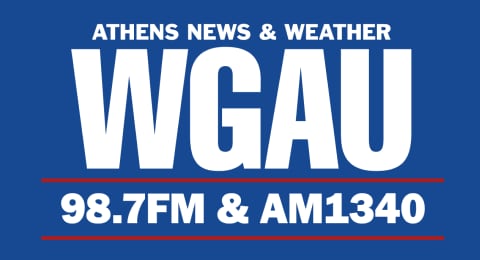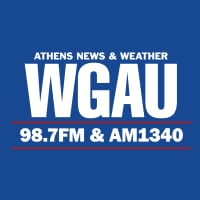BEIRUT — (AP) — The Israeli military has carried out a wave of airstrikes targeting branches of a financial institution affiliated with Lebanon’s Hezbollah, saying the quasi-banking system is being used to fund the militant group's military wing.
The strikes destroyed more than a dozen branches of al-Qard al-Hasan across Lebanon Sunday night, and came two weeks after an airstrike killed the man who many referred to as Hezbollah's "finance minister."
After assassinating most of Hezbollah's top political and military commanders, including the group's longtime leader Sayyed Hassan Nasrallah, and pummeling its communities with devastating airstrikes, Israel says it is now going after the Shiite group's funders and financial institutions in an attempt to further disrupt it and its base of support.
Hezbollah started attacking Israeli military posts along the border with Lebanon a day after the Oct. 7, 2023, attack by Hamas on southern Israel that killed some 1,200 people and took about 250 hostage. Hezbollah said that by launching attacks along the Lebanon-Israel border it was backing up its Hamas allies in the Gaza Strip.
Al-Qard al-Hasan is officially a non-profit charity institution operating outside the Lebanese financial system, and one of the tools by which Hezbollah entrenches its support among the country’s Shiite population.
In addition to its military wing, Hezbollah has branches that run schools, hospitals, low-price grocery stores, as well as al-Qard al-Hasan, from which hundreds of thousands of its supporters benefit.
Israel says the institution finances arms purchases and is used to pay Hezbollah fighters. The U.S. Treasury has imposed sanctions on it since 2007, saying it is “used by Hezbollah as a cover" to manage the militant group’s financial activities "and gain access to the international financial system.”
Founded four decades ago, soon after Hezbollah’s inception, the association, whose name in Arabic means “the benevolent loan,” offers interest-free loans and allows people to deposit gold as collateral in return for the credit, enabling them to pay for school fees and weddings, buy a car or open a small business. People can also open savings accounts.
Al-Qard al-Hasan has more than 30 branches around Lebanon. Following Lebanon's 2019 financial collapse, the institution provided a lifeline for many Lebanese. Unlike banks around the country that imposed limits on how much people could withdraw from their bank accounts, people with deposits at al-Qard al-Hasan were still able to withdraw their cash.
In 2021, the U.S. Treasury’s Office of Foreign Assets Control imposed sanctions on seven individuals in connection with Hezbollah and al-Qard al-Hasan. A year later, the Biden administration slapped terrorism sanctions on two others, including al-Qard al-Hasan’s director, Adel Mansour, and two companies in Lebanon for providing Hezbollah with financial services.
Mansour did not respond to messages left by The Associated Press for comment. After sanctions were imposed against him two years, he told the AP: “I am proud and this is a medal of honor for me.”
A senior official at the central bank in Beirut refused to comment about the Israeli targeting of al-Qard al-Hasan branches when contacted by the AP on Monday.
David Asher, an expert on illicit financing who has worked at the U.S. Defense and State Departments and is now a senior fellow at the Hudson Institute, said the Israeli attacks were “a big deal.”
“Al-Qard al-Hasan is part of Hezbollah’s central financial unit,” which is akin to its treasury, he said.
Faysal Abdul-Sater, a Lebanese political analyst who closely follows Hezbollah’s affairs, said the militant group is not funded through al-Qard al-Hasan. He said the money deposited at the institution belongs to individuals and companies, and the system benefits people with low incomes.
“This is a symbolic strike,” Abdul-Sater said about targeting al-Qard al-Hasan.
The systematic destruction of al-Qard al-Hasan branches, coming after assassinations that took out almost all of Hezbollah’s top leadership and displaced hundreds of thousands of the group’s supporters, is bound to add to the chaos and fears within Hezbollah’s base of support.
But experts say it is unlikely to harm Hezbollah's finances in and of itself.
Al-Qard al-Hasan tried to reassure customers, saying in a statement late Sunday that it had evacuated all its branches and relocated gold and other deposits to safe areas.
Lebanese economist Louis Hobeika said destroying al-Qard al-Hasan branches will have no effect on Hezbollah’s funding as its money comes from Iran and wealthy supporters around the world. The group's salaries are known to be paid in cash in dollars.
“As long as Iran and Hezbollah’s allies are funding the group it will not be affected,” Hobeika said, adding that the flow of “bags of cash” from abroad will continue just like in the past.
Lina Khatib, an associate fellow at Chatham House who focuses on the Middle East, said al-Qard al-Hasan customers still have faith that “Hezbollah will be able to compensate them for their losses.”
Khatib noted that al-Qard al-Hasan's operations, like those of any financial institution, are not limited to any physical assets the strikes targeted.
A Lebanese woman who gave only her first name, Zahraa, for safety reasons, said she was in need of cash and deposited a gold necklace and several rings earlier this year in return for an $800 loan. The woman said she has been repaying it in $50 monthly installments.
“I don’t care whether I get the gold or not at a time when men are sacrificing their souls in south Lebanon,” Zahraa said referring to Hezbollah gunmen who are fighting invading Israeli forces.
Israel began going after Hezbollah's finances earlier this month, when an Israeli airstrike destroyed the top two floors of a south Beirut building, killing Mohammed Jaafar Qassir, who the U.S. Treasury and Israel accused of transferring hundreds of millions of dollars from Iran to Hezbollah over the years. The U.S. had offered $10 million for information leading to the disruption of the financial mechanisms of Hezbollah.
The U.S. Treasury said Qassir provided funding for Hezbollah operations through a number of “illegal smuggling and procurement activities and other criminal enterprises.”
It added that Qassir was also a critical conduit for financial disbursements from the powerful Quds Force branch of Iran’s paramilitary Revolutionary Guard that are used to fund Hezbollah’s activities.
The Israeli military said Qassir was in charge of Hezbollah’s Unit 4400, which ships weapons from Iran to Lebanon, and supervised Hezbollah’s development of precision-guided missiles.
Hezbollah did not comment on Qassir’s killing.
Days after Qassir was killed in Beirut, an airstrike in Damascus, Syria, blamed on Israel killed his brother Hasan, who was married to Nasrallah’s daughter, Zeinab.
____
Associated Press writers Adam Schreck in Jerusalem and Mohammad Zaatari in Sidon, Lebanon, contributed to this report.
Copyright 2024 The Associated Press. All rights reserved. This material may not be published, broadcast, rewritten or redistributed without permission.

:quality(70)/cloudfront-us-east-1.images.arcpublishing.com/cmg/TYPCAC65EJMVV5XF24GNU346BY.jpg)
:quality(70)/cloudfront-us-east-1.images.arcpublishing.com/cmg/XGDFDHGENJG5HLIZP3Z6CGOOTM.jpg)
:quality(70)/cloudfront-us-east-1.images.arcpublishing.com/cmg/EVSMYKT77VAYTOQRQNFY5H7RKQ.jpeg)
:quality(70)/cloudfront-us-east-1.images.arcpublishing.com/cmg/DQVT3IMPTBFZRNU7XWX7WSKLX4.jpeg)
:quality(70)/cloudfront-us-east-1.images.arcpublishing.com/cmg/EYFGPNMDEVGAHCCLYQXE5SIVGI.jpeg)
:quality(70)/cloudfront-us-east-1.images.arcpublishing.com/cmg/JMXU6MQENVA7NKWZDHTAM2PQ6I.png)
